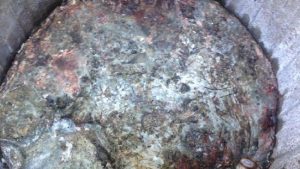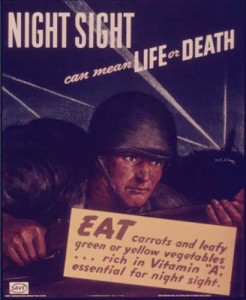The short answer is No. There have been a lot of claims in social media and the press that landlords in Berkeley will no longer rent apartments to Irish students because of the balcony collapse at Library Gardens downtown that resulted in the deaths of 6 Irish college students. These stories are untrue. I have been a landlord in Berkeley for over 40 years, and nearly all my tenants are U.C. Berkeley students. I know a lot of other Berkeley landlords, and none of them blame the victims for this tragedy. It is true that there were far more people on that balcony when it collapsed than was prudent; however, engineering reports showed that the cause of the collapse was poor construction resulting in wood rot and that had the balcony been properly built, it could have supported the weight of those students. The sympathies of all the landlords I know are with the families of these students. Yes, it is hard for Irish students to rent apartments in Berkeley for the summer, but not because they are Irish. There is a severe rental housing shortage in Berkeley, and because of our local rent laws, most leases in Berkeley prohibit sub-leasing. The Irish counsel general in San Francisco has investigated claims of discrimination against Irish students in Berkeley and has concluded that these stories are baseless and has said so publicly.
Have You Ever Heard of a ‘Fatberg’?
 Last month, I had an article about flushable products in this newsletter. Somebody who read that article suggested that I look into ‘fatbergs’. Although I think I have a fairly good vocabulary, I had never heard the word ‘fatberg’ before. A fatberg is a congealed lump of kitchen fat and flushable products. Flushable products are products that manufacturer claims are safe to flush but which do not dissolve in water like toilet paper. Fatbergs have been found in sewer pipes all over the world. They are often round and get bigger as more and more flushable products become incorporated in them, much the same way that a snowball gets bigger as it rolls downhill. Fatbergs can clog up even the biggest sewer pipes. In New York City, a fatberg weighing 10 tons was removed from a sewer pipe. Try to picture that – a hard round ball made up entirely out of kitchen fat and used baby wipes and sanitary napkins and weighing 10 tons. How would you like to have the job of removing something like that from a sewer pipe? Major cities all over the world are spending huge sums of money removing fatbergs from their sewers. Recently, a fatberg the size of a Boeing 747 jumbo jet was removed from a sewer in London! Below is a photo of an 8 ton fatberg that rolled into a turn in a sewer pipe in Sydney, Australia, sealing off the flow of sewage. I have been looking at photos of fatbergs on Google images, and I must admit that some of them look strangely beautiful. Of course, I am looking at them at a distance. I strongly suspect that fatbergs are not as pretty to look at (or smell) up close.
Last month, I had an article about flushable products in this newsletter. Somebody who read that article suggested that I look into ‘fatbergs’. Although I think I have a fairly good vocabulary, I had never heard the word ‘fatberg’ before. A fatberg is a congealed lump of kitchen fat and flushable products. Flushable products are products that manufacturer claims are safe to flush but which do not dissolve in water like toilet paper. Fatbergs have been found in sewer pipes all over the world. They are often round and get bigger as more and more flushable products become incorporated in them, much the same way that a snowball gets bigger as it rolls downhill. Fatbergs can clog up even the biggest sewer pipes. In New York City, a fatberg weighing 10 tons was removed from a sewer pipe. Try to picture that – a hard round ball made up entirely out of kitchen fat and used baby wipes and sanitary napkins and weighing 10 tons. How would you like to have the job of removing something like that from a sewer pipe? Major cities all over the world are spending huge sums of money removing fatbergs from their sewers. Recently, a fatberg the size of a Boeing 747 jumbo jet was removed from a sewer in London! Below is a photo of an 8 ton fatberg that rolled into a turn in a sewer pipe in Sydney, Australia, sealing off the flow of sewage. I have been looking at photos of fatbergs on Google images, and I must admit that some of them look strangely beautiful. Of course, I am looking at them at a distance. I strongly suspect that fatbergs are not as pretty to look at (or smell) up close.
The word ‘flushable’ has no legal definition. Right now, any manufacturer can say that any product is ‘flushable.’ I think Congress should create a legal definition for the word ‘flushable’ just as they did for the words ‘organic’ and ‘gluten-free.’ To repeat what I said last month – never, never flush so-called flushable products.
English Joke.
A Trip to the Egyptian Museum.
New in the Chocolate Room.
 tes grown in the United States come in California. I have it in 8 ounce and 16 ounce jars. Most people, even people here in California, don’t realize how much of our nation’s food comes from California. Nearly 100% of the following crops come from California: apricots, artichokes, broccoli, cauliflower, celery, figs, garlic, grapes, kiwifruit, nectarines, olives, clingstone peaches, pistachios, plums, pomegranates, and strawberries.
tes grown in the United States come in California. I have it in 8 ounce and 16 ounce jars. Most people, even people here in California, don’t realize how much of our nation’s food comes from California. Nearly 100% of the following crops come from California: apricots, artichokes, broccoli, cauliflower, celery, figs, garlic, grapes, kiwifruit, nectarines, olives, clingstone peaches, pistachios, plums, pomegranates, and strawberries.Don’t Use Your Toilet As A Waste Basket.
IS IT SAFE TO FLUSH FLUSHABLE PRODUCTS?
The short answer is No. There are a lot of products sold in supermarkets that say ‘flushable’ on the label, including facial and baby wipes, cosmetic applicators, and cleansing cloths. In 2014, Consumer Reports tested a variety of wipes that were labeled ‘flushable’ and concluded that it isn’t safe to flush any of them. Here’s a short video from Consumer Reports explaining why: Are They Really Flushable? You should put flushable products in your trash can, not the toilet. As I said before, the only product that is safe to go in your toilet is toilet paper.
Worthless Guarantees.
Is There Lead In Hershey Bars?
This is another Yes and No. The State of California is threatening to sue Hershey for failing to put Prop. 65 warning labels on their chocolate bars telling consumers that Hershey bars contain lead. Well Yes, there is lead in Hershey bars, but Hershey doesn’t put lead in their chocolate. Why would they? The fact is that all cacao beans contain a small amount of lead. As Hersheys explains: “All foods that are grown in nature contain small amounts of elements and minerals, such as cadmium and lead, which occur naturally in all soils because they are found in the Earth’s crust.” You may have seen stories in the press over the past year about this and thought about switching to a different brand of chocolate. That won’t do any good. There is a trace amount of lead in all chocolate. In addition to Hershey, California has also filed or threatened to file Prop. 65 lawsuits against Trader Joes, Green and Black, Lindt, Whole Foods, Kroger, Godiva, See’s, Mars, Theo, and Ghirardelli. There’s no decision yet. (P.S. – There is also a surprisingly large amount of nicotine in eggplant, but that’s a story for another day.)
Will Businesses Replace Workers With Machines If The Minimum Wage Goes Up?
The simple fact is this – As soon as a machine is invented that can do the job of a worker, it is just a matter of time before that worker is replaced by that machine. The national minimum wage is now 25% lower than it was when Lyndon Johnson was president, adjusted for inflation, but tens of millions of Americans have lost their jobs since then anyway due to automation. Consider automobile assembly plants. 50 years ago, when Lyndon Johnson was president, the floor of an auto assembly plant needed hundreds of workers in order to function. Today, auto assembly plants have hundreds of robotic arms making cars with just a handful of workers. Was this because of increases in the minimum wage? No. Auto factory workers were never paid minimum wage. They always made more than that. All my life I have heard politicians say that raising the minimum wage would lead to millions of people losing their jobs, but that has never actually happened. However, this time, maybe it will. California is raising the minimum wage to $15 an hour, phased in over several years. I am confident that expensive French restaurants in Silicon Valley will be able to absorb this cost, but what about businesses in the Central Valley? Cities in the Central Valley like Stockton and Modesto were poor before the financial meltdown of 2008, and they never recovered from that. Frankly, I am very skeptical that small businesses in the Central Valley will be able to pay $15 an hour and stay in business. We will see.
The bottom line is this – regardless of whether the minimum wage goes up or not, businesses will continue to replace workers with machines as soon as those machines are invented and are practical. This is has been going on continuously ever since James Watt invented the steam engine in 1775, which kicked off the Industrial Revolution, and the Industrial Revolution had nothing to do with minimum wage laws. They didn’t have minimum wage laws in the 18th Century.
Can You Really Improve Your Eyesight By Eating A Lot Of Carrots?
 During World War 2, the British government didn’t want the Germans to realize just how important radar was to their national defense. Radar was the principle reason why the RAF (Royal Air Force) won the Battle of Britain. The British Air Ministry built a chain of radar stations along the southern coast of England before World War 2 began. Because the Air Ministry had these radar stations, the RAF knew exactly when German bombers were headed their way, and they knew it long before the planes arrived. Fortunately for Britain, neither Hitler nor Goering (the head of the German air force) understood how radar worked or how important it was. The British Air Ministry didn’t want Hitler to figure this out, but the RAF was shooting down a tremendous number of German airplanes, and the Air Ministry needed some sort of plausible explanation for this. They started running stories in British newspapers claiming that their aircraft spotters had exceptional eyesight because they ate a lot of carrots, which supposedly gave them the ability to see German airplanes at night, in total darkness, and at great distances. As preposterous as this story was, a lot of people believed it! The Air Ministry released stories throughout the war about British aircraft spotters, most of whom were women, along with pictures of them eating carrots while looking for German airplanes at night. This disinformation campaign was so persuasive that a lot of Englishmen started eating carrots in the belief that it would help them find their way around English city streets during the nightly blackouts. The story spread around the world and is still widely believed to be true. Even now, people everywhere with poor eyesight eat carrots in the belief that it will improve their vision. The truth is that you cannot improve your eyesight, cure eye disease, or develop the ability to see in total darkness by eating carrots. On the other hand – eating carrots won’t hurt. (Above is a World War 2 American propaganda poster claiming that eating carrots improves the night vision of American soldiers.) There are a lot of other commonly accepted myths that started off as World War 2 propaganda. Perhaps I will cover some of the others in the future.
During World War 2, the British government didn’t want the Germans to realize just how important radar was to their national defense. Radar was the principle reason why the RAF (Royal Air Force) won the Battle of Britain. The British Air Ministry built a chain of radar stations along the southern coast of England before World War 2 began. Because the Air Ministry had these radar stations, the RAF knew exactly when German bombers were headed their way, and they knew it long before the planes arrived. Fortunately for Britain, neither Hitler nor Goering (the head of the German air force) understood how radar worked or how important it was. The British Air Ministry didn’t want Hitler to figure this out, but the RAF was shooting down a tremendous number of German airplanes, and the Air Ministry needed some sort of plausible explanation for this. They started running stories in British newspapers claiming that their aircraft spotters had exceptional eyesight because they ate a lot of carrots, which supposedly gave them the ability to see German airplanes at night, in total darkness, and at great distances. As preposterous as this story was, a lot of people believed it! The Air Ministry released stories throughout the war about British aircraft spotters, most of whom were women, along with pictures of them eating carrots while looking for German airplanes at night. This disinformation campaign was so persuasive that a lot of Englishmen started eating carrots in the belief that it would help them find their way around English city streets during the nightly blackouts. The story spread around the world and is still widely believed to be true. Even now, people everywhere with poor eyesight eat carrots in the belief that it will improve their vision. The truth is that you cannot improve your eyesight, cure eye disease, or develop the ability to see in total darkness by eating carrots. On the other hand – eating carrots won’t hurt. (Above is a World War 2 American propaganda poster claiming that eating carrots improves the night vision of American soldiers.) There are a lot of other commonly accepted myths that started off as World War 2 propaganda. Perhaps I will cover some of the others in the future.
